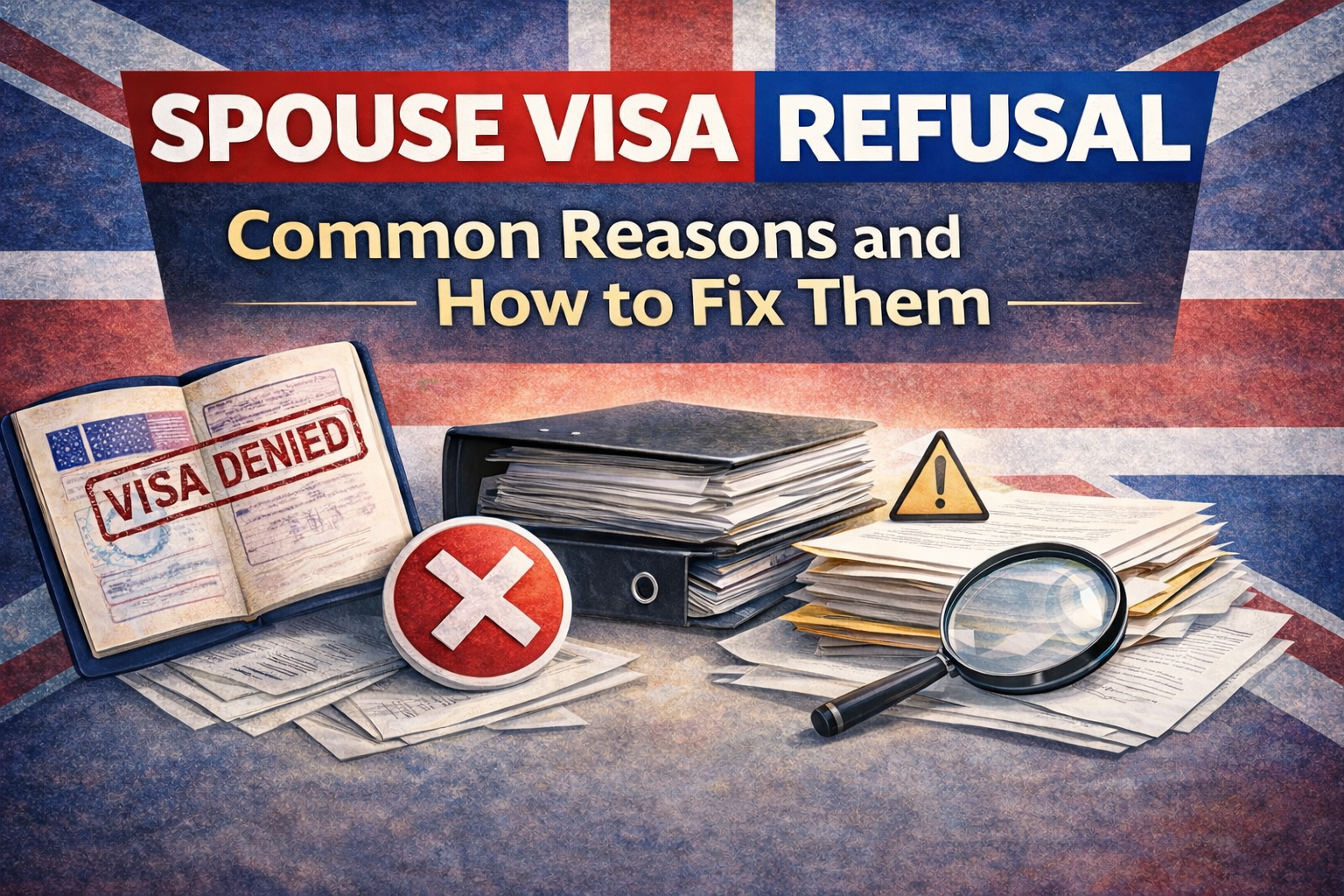Applying for Asylum in the UK
Seeking asylum in the UK can be a daunting and emotional journey. Whether you’re fleeing war, persecution, or serious human rights violations, it’s essential to understand your rights, the legal process, and what happens at each stage. This guide explains the UK asylum application process in 2025, including eligibility, interviews, legal rights, and key changes to be aware of.
What Is Asylum?
Asylum is a form of protection granted to people fleeing persecution or serious harm in their home country. If your asylum claim is accepted, you are granted refugee status or humanitarian protection, allowing you to live in the UK legally and access certain rights and services.
The legal framework is based on the 1951 Refugee Convention, the UK’s Human Rights Act 1998, and the updated immigration rules (as amended in 2025).
Who Can Claim Asylum in the UK?
You may apply for asylum if:
- You are outside your home country and cannot return due to a well-founded fear of persecution based on race, religion, nationality, political opinion, or membership of a particular social group.
- You are already in the UK and fear return due to serious harm or violation of human rights.
You Cannot Apply for Asylum If:
- You are an EU national (with exceptions for exceptional circumstances).
- You have already claimed asylum in a safe third country (e.g. another EU state under the inadmissibility rules).
How to Apply for Asylum in the UK
You must inform the UK authorities as soon as possible after arrival that you wish to claim asylum. If you wait too long without good reason, your claim may be doubted or fast-tracked for refusal.
Step 1: Screening Interview
This is your first formal contact with the Home Office. It takes place at:
- A port of entry (airport, seaport)
- The Asylum Intake Unit in Croydon (if already in the UK)
At this stage, you’ll be:
- Asked basic personal details
- Photographed and fingerprinted (biometric data taken)
- Given an ARC (Application Registration Card)
You will not need to explain your full story yet — just outline your reasons briefly. You must disclose if you have dependants (spouse, children).
Step 2: Substantive Interview
This is the main asylum interview. It is in-depth and may last several hours.
You will need to:
- Explain why you cannot return home
- Provide details about the harm you suffered or fear
- Answer questions about your journey, documents, and background
This is your main chance to tell your story. Inconsistencies or missing details may harm your credibility, so legal preparation is strongly advised.
Evidence to Support Your Claim
You should provide any evidence that supports your story, such as:
- Personal statements
- Medical reports
- Police or court documents
- Photos or news articles
- Reports from NGOs or human rights bodies
If you do not have documents, your testimony will be assessed for credibility.
What Happens After the Interview?
The Home Office may:
- Grant refugee status (5 years’ leave to remain, path to settlement)
- Grant humanitarian protection (also 5 years)
- Refuse the claim, which could lead to:
- Right to appeal
- Detention
- Removal from the UK
Some cases are placed on the fast-track refusal list, especially if the claim is deemed clearly unfounded.
Rights of Asylum Seekers in the UK
While your asylum claim is pending, you have rights including:
- Access to free legal advice (Legal Aid)
- Basic housing and support through Asylum Support if you are destitute
- Access to healthcare via the NHS
- Children can attend state schools
- Protection from removal while your claim is considered
You cannot usually work unless your claim has been pending for over 12 months without a decision.
Asylum Support and Accommodation
If you cannot support yourself, the Home Office may provide:
- Basic housing (you cannot choose where)
- Weekly allowance (currently £47.39 per person)
- Maternity grants and healthcare items (for expectant mothers)
You must follow rules and conditions or risk losing support.
Appeals and Refusals
If your claim is refused, you will usually have 14 days to lodge an appeal with the First-tier Tribunal.
You may still be able to remain in the UK if:
- You win on appeal
- You submit a fresh claim with new evidence
- There are legal grounds to stop your removal (e.g. medical or human rights)
Fast-track and overseas appeal systems are expanding under 2025 reforms, meaning some appeals may be heard remotely after deportation — especially for those deemed to have abused the asylum process.
Recent Updates in 2025
- The Home Office is trialling fast-track asylum appeals for some nationalities.
- A new system prioritises rapid processing for clearly unfounded claims.
- EU safe country rules are more strictly enforced under the UK Borders Act 2024.
- The average waiting time for decisions remains over 6 months, though reforms aim to reduce this.
When to Get Legal Help
You should seek immigration legal advice if:
- You are attending your substantive interview
- Your claim has been refused and you want to appeal
- You need help gathering evidence or preparing your statement
- You’re being held in detention while your asylum claim is processed
Legal aid is available to asylum seekers. A qualified solicitor can help you understand your rights, avoid refusal risks, and prepare for appeal if necessary.
Final Thoughts
Claiming asylum in the UK is a serious legal process with life-altering consequences. The outcome of your claim depends heavily on your personal credibility, the evidence you can provide, and how well you prepare for interviews and appeals.
Whether you’re at the start of your asylum journey or appealing a refusal, getting expert legal support can make all the difference.
If you’re seeking asylum or supporting someone who is, contact an Hi Solicitors immigration solicitors today to get the help you need.





